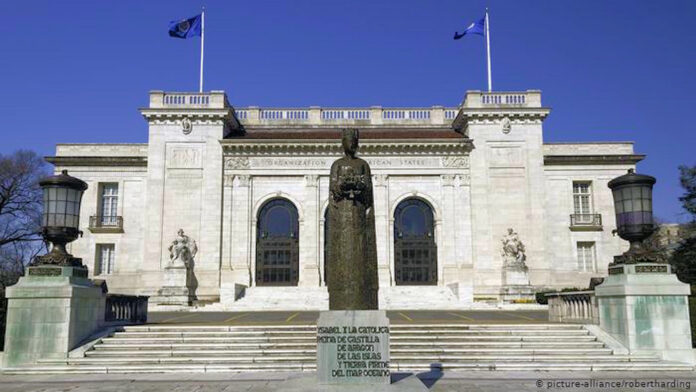
(Français)
The preliminary draft of a “Haiti-led roadmap for stability and peace with regional and international support,” developed by the Organization of American States (OAS), estimated to cost US$1.3 billion, includes four pillars of intervention, according to our analysis, and resembles the 2004 Interim Cooperation Framework.
- Humanitarian response, requiring $908.2 million — reminiscent of Bill Clinton’s Interim Haiti Reconstruction Commission (IHRC) with nearly $10 billion for the reconstruction of the Port-au-Prince metropolitan area devastated by the Jan. 12, 2010 earthquake.
- Security stabilization and peacebuilding in Haiti, requiring $96 million, relatively small compared to the operating budget of the Multinational Security Support Mission (MSS) but much higher than the budget of the Haitian National Police (PNH) and armed forces combined.
- Political consensus and support for governance in Haiti, requiring $5.1 million, another slice of the pie, as was the case with the transitional presidential council, this time with a single president.
- Electoral Process and Institutional Legitimacy, at a cost of $104.1 million, by which we mean the organization of (s)elections as in the past and a so-called reform of the Constitution.
The draft of this OAS roadmap, which covers a period from October 2025 to February 2028, is presented as “coordinated efforts for peace and stability in Haiti, led by the Haitian authorities, in coordination with the OAS, CARICOM (Group of Eminent Persons), BINUH – United Nations System/Agencies, the Inter-American System (IDB, PAHO, IICA), donors, civil society and academia, the Haitian diaspora, and supporting institutions.”
Its authors go on to say that “all actions must be based on priorities defined by Haiti and involve national institutions, civil society, and local authorities to ensure their legitimacy, strengthen civic trust, and promote sustainability.”
By what mechanism will Haiti define priorities? Which national institutions will be represented? Which “civil society”? Who are these so-called local authorities? U.S. imperialism cannot operate as it wishes in the past and is seeking to use the “front-man policy” (politique de doubleur) so often used in Haiti, generation after generation. Bourgeois “civil society” groups have always been complicit in the U.S. political and economic plans for Haiti, plans that have led to the Haitian state’s bankruptcy and to the detriment of the popular masses and workers.
The eminent personalities of CARICOM have failed miserably with the Haitian Transitional Presidential Council (CPT). National institutions are dysfunctional and drowned in nepotism, inexperience, and corruption. Local and national authorities are all interim agents of the transition, chosen by CARICOM after approval of the U.S. government, which has no legitimacy to commit the future of the nation to such an enterprise of trusteeship, a new version of the 2003 Ottawa Initiative. The Haitian people must revolt to overthrow the nine-member presidential council and not submit to the dictates of the West’s capitalist powers.
Progressives must say “NO!” to foreign interference and fight the opportunists who seek to hijack the masses’ resistance for their electoral gain. Elections cannot be held in Haiti under these conditions; the time has come to mobilize the masses for a truly radical transition.
As presented, the OAS’s preliminary draft roadmap is an attempt to reconstitute the “Core Group” and a perfect guide for not resolving the crisis in Haiti and perpetuating the Haitian masses’ misery.
The only solution to the crisis is socialist revolution.










[…] (English) […]